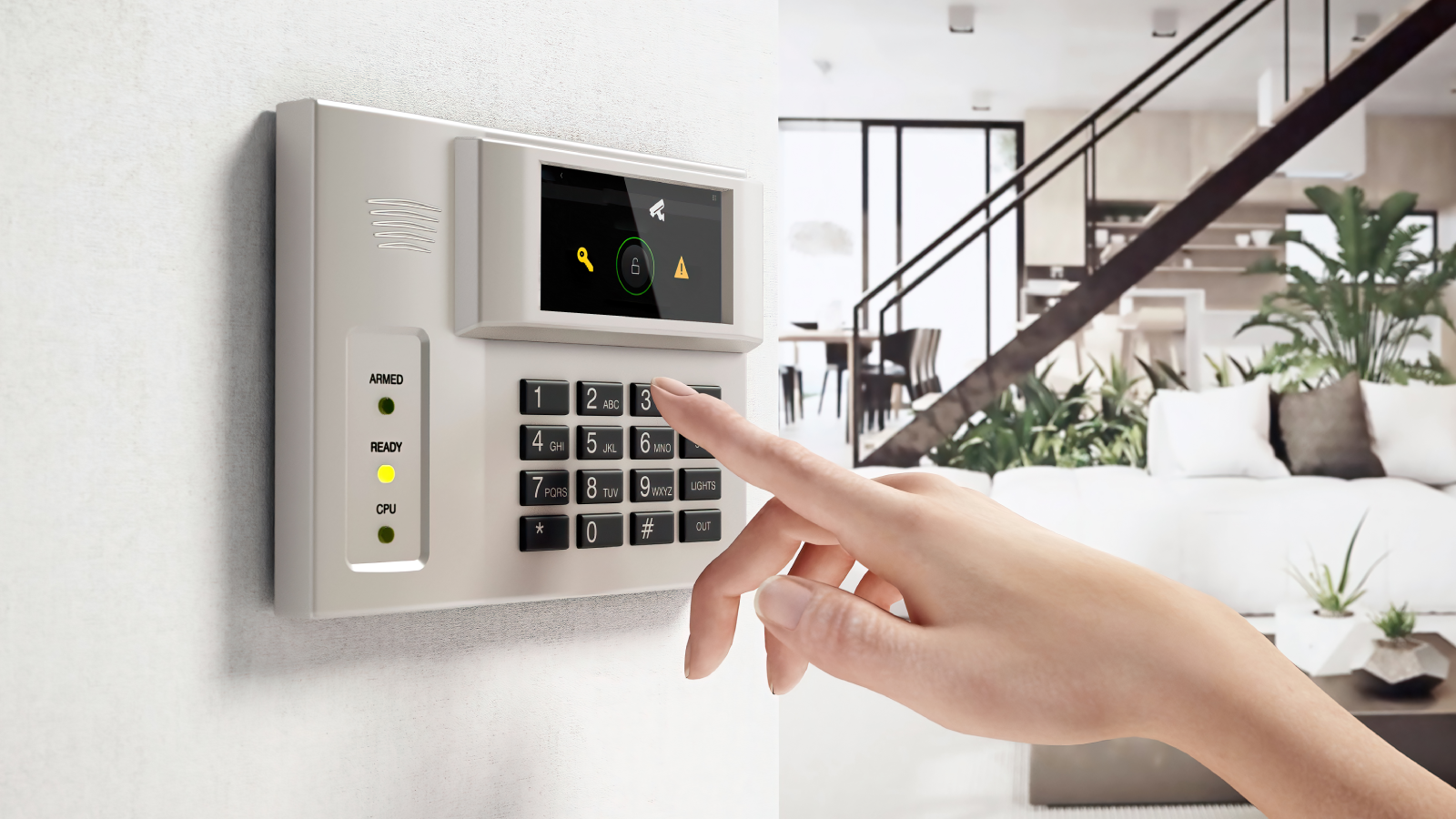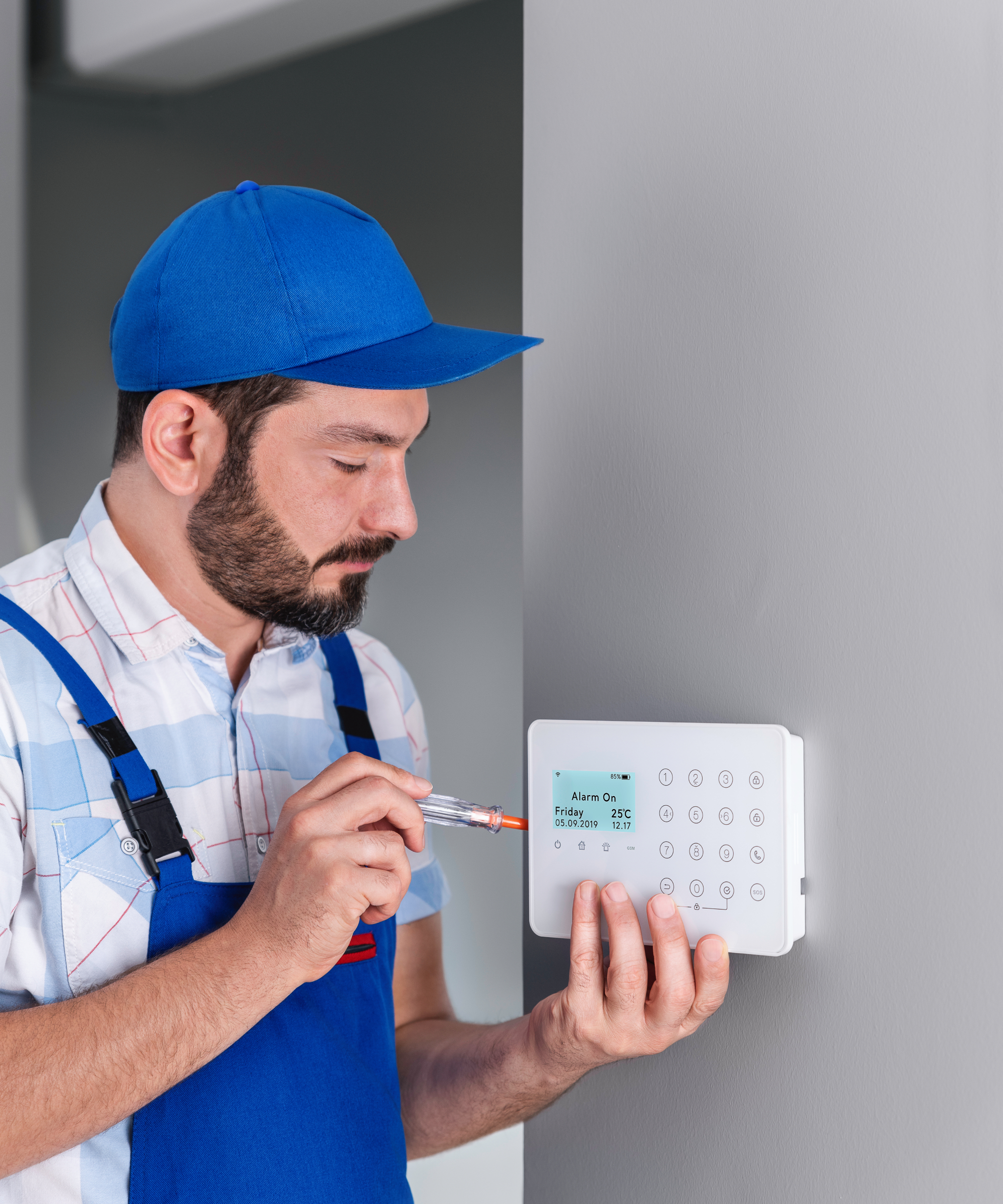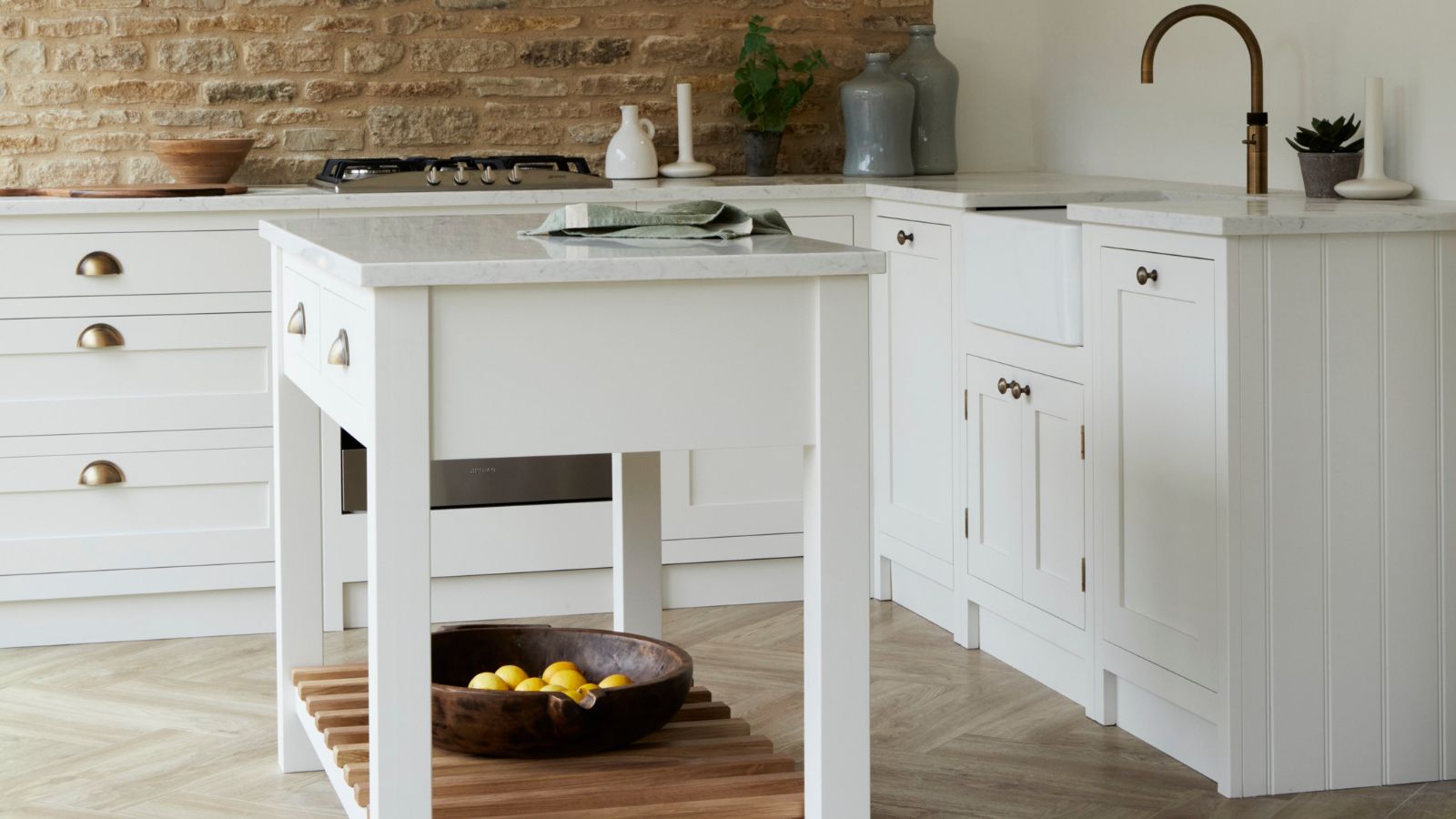
Wired home security systems are generally considered the most stable, ultra-secure choice for protecting your home. But, when picking the best home security systems, it’s worth remembering that wired systems tend to cost more to install, and usually require a professional.
That said, the upsides of a wired connection are considerable, and make them a great choice for a lot of properties where Wi-Fi based systems might struggle – such as homes with long driveways or Victorian and Georgian properties with thick walls.
So although wired home security systems may mean spending more, if you’re looking for a reliable home security system that will not run out of batteries, or get disconnected when your router fails, they're a great choice. We explore the pros and cons and what to expect when choosing one.
Wireless vs wired home security systems
Many of the wireless home security systems on sale today, such as the Yale YES-ALARMKIT Home Security Essential Alarm Kit from Wickes, use either Wi-Fi or mobile connections to keep different components connected.
By contrast, wired systems, such as the one offered by Simplisafe, rely on mains-powered cables to connect components and this is where the main difference lies. The components will be similar, but how they communicate between them is not.
“Wired home security systems generally rely on control panels along with hardwired cameras like CCTV, door and window sensors and wired alarms," explains Hayley Brown, smart home expert at AO.com.
"Most of these parts will also come with backup battery units and keypads, which can arm, or disarm, the entire system." And, while this is similar to a wireless system, “wired home security systems differ by using physical cables to connect sensors, cameras and alarms to a central control panel," confirms Hayley.
Bring your dream home to life with expert advice, how to guides and design inspiration. Sign up for our newsletter and get two free tickets to a Homebuilding & Renovating Show near you.
"This is often monitored via a landline phone or internet connection too, although some of the newer models can use apps for remote access as well," she adds.
Although with some systems, such as those offered by Verisure, there's often the option to add extras such as personal alarms and remote links to alert security.
The latter can be particularly advantageous if you travel a lot for example, as it means the system will communicate with an Alarm Receiving Centre who can take action if there is a problem and you're not around. The centre will alert emergency contacts, security or even police, and while some also offer live monitoring, this is more common in systems for commercial properties.

Hayley Brown is a Smart Home and Tech expert at AO.com, and an expert on everything from how to choose home security cameras, how they work and what you need in your home, as well as the more general details on cleaning and maintenance.
How do you install a wired home security system?
Unlike wireless systems which can usually be self-installed, the installation process for a wired home security system is fiddly, and normally requires the help of a professional. This adds to the cost, with installations starting from around £300 and rising to £1,000 or more.
But there's a good reason why it's not really a DIY job, says Hayley Brown.
"Given the scale of the job at hand, installing a wired security system is a professional job that you’ll need someone to install. Wires need to be led discreetly through walls, ceilings or along skirting boards. However, once set up, the system is very low maintenance.”
Of course, if you're undertaking a self build or major home renovation, adding the wiring for a home alarm system will naturally be a much easier job. Just make sure your architect and electrician is aware you want a wired system, so they can ensure the cables are run during the first fix phase.

What are the key features I should look for?
Although wired home security systems are ultimately designed for larger homes or for houses with unreliable Wi-Fi, it's still worth investigating ones that have extra smartphone compatibility, advises Hayley Brown.
“Wired systems come with HD cameras equipped with night vision to record things at the dead of night. Always try to look for one with ample local storage for recordings, and if possible, a system that integrates with modern smartphone apps," she recommends.
What are the pros and cons of a wired home security system?
Wired home security systems are generally more reliable, and while installation and purchase can be expensive, meaning wired systems can significantly hike your home security system costs, this can off-set against some of the monthly costs you might incur with wireless systems.
“In general, for larger homes or those in areas with patchy Wi-Fi, a wired system offers peace of mind and robust coverage," says Anthony Neary, managing director and security expert at Safe.
"Prices are typically higher up front due to installation costs," he agrees, "but the lack of monthly subscriptions can balance this over time.”

Anthony Neary, Managing Director and security expert at Safe has long-standing expertise in everything from safe rooms to security cameras, making him an expert on ensuring your home security is as safe as it can be.
What maintenance requirements can you expect?
Generally speaking, wired systems such as the Foundation from Simplisafe are more reliable than wireless ones, but it still pays to check that your system is working.
“The best ways to maintain your wired system is to check its cables annually for any wear and tear," says Hayley Brown. "Also be mindful to check the hard drive and ensure it has sufficient storage space. Similarly, try to clean the cameras for clearer images, and replace any batteries every couple of years.”
FAQs
Are there any security concerns with wired home security systems?
Wired systems are very reliable, and can’t be ‘knocked out’ by events like batteries running out, or Wi-Fi disconnections. Also, signals can’t be jammed by burglars, according to Anthony Neary.
"But it’s worth paying attention to the details around security," he says. "When choosing a system, look for compatibility with backup power sources, tamper-proof cabling, and high-quality storage for footage.
"Maintenance for wired devices is minimal as they rarely need battery changes, but it’s wise to regularly check connections and ensure cables aren’t damaged," he adds.
How will wired security systems improve in the future?
Wired security systems are already evolving says Anthony Neary, with some now offering hybrid setups, where part of a system is wired and part is wireless.
Going forward, wired security systems will blend in with other technologies like smart home technology and smart lighting, so that systems can turn lights on to make it appear as if homeowners are in the property, for example.
Artificial intelligence used to analyse footage, will also play a role, suggests Anthony, saying" "I would predict that soon we will see greater storage capacity, AI analysis of footage, and smarter integration with other in-home systems.”
Of course, any home security system only works if you've specified and had it installed correctly. What that in mind, make sure you familiarise yourself with some of the home security mistakes you can in fact avoid, and find out the best places for your security cameras to make sure your home is monitored from the most important angles.
Rob Waugh is one of Britain's leading science and technology journalists, and has written about gadgets, apps and smart home technology for more than 25 years. From first covering technology back when the original PlayStation was still the must-have gadget, and the idea of a ‘smart home’ was more science fiction than reality, Rob has written on subjects ranging from advanced artificial intelligence to connected kettles, along with countless major smart home technology launches. His work has appeared in titles including the Mail on Sunday, the Telegraph, the New York Post, Daily Mail Online, Yahoo News, Metro and Vanity Fair On Time. Rob’s forthcoming book, NASA’s Bees, explores the history of AI and robotics. He is also currently recovering from a recent kitchen renovation.

